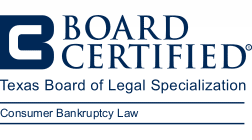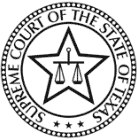Bankruptcy Trustees 101 | Texas
 Of all the aspects of the bankruptcy process, one that will have a significant role in the bankruptcy is the bankruptcy trustee. But if you are facing bankruptcy you are likely unfamiliar with the role of the bankruptcy trustee in a bankruptcy, which varies depending on whether you are filing for Chapter 7 or Chapter 13 bankruptcy. While your attorney can advise you on the trustee’s role in your case, it can be helpful to have a general idea of what the title "Bankruptcy Trustee" actually means.
Of all the aspects of the bankruptcy process, one that will have a significant role in the bankruptcy is the bankruptcy trustee. But if you are facing bankruptcy you are likely unfamiliar with the role of the bankruptcy trustee in a bankruptcy, which varies depending on whether you are filing for Chapter 7 or Chapter 13 bankruptcy. While your attorney can advise you on the trustee’s role in your case, it can be helpful to have a general idea of what the title "Bankruptcy Trustee" actually means.
What is a Bankruptcy Trustee’s Role?
In Texas, the bankruptcy trustee is appointed by the U.S. Trustee’s Office. The bankruptcy trustee is employed by the U.S. Department of Justice and works for the bankruptcy court. Their main role in the bankruptcy proceeding is to facilitate the bankruptcy process. The trustee acts as the go-between for you as the debtor and the bankruptcy court. Although trustees have a lot of powers, the court must authorize any action they take.
What is the Role of a Bankruptcy Trustee?
The roles and duties of the bankruptcy trustee will depend on whether the case is a Chapter 7 or Chapter 13 proceeding. But generally speaking, the trustee conducts meetings such as the Meeting of the Creditors, or 341 meeting, which is a meeting with the debtor’s creditors that you as the debtor must also attend.
A trustee will also review the financial information for the case and act as an intermediary between you and the creditors. A trustee will also manage the bankruptcy estate, which is legally established by the court when you file for bankruptcy and into which all the assets that will be used to pay back debtors will go. You cannot manage this estate, so it is the trustee’s role to do so.
The trustee will also have specific roles depending on whether it is a Chapter 7 or Chapter 13 bankruptcy:
Chapter 7 Trustee
-
Gathering assets and property
-
Selling property
-
Ensuring a bankruptcy claim is not fraudulent
-
Overseeing the distribution of assets to creditors
-
Challenging creditor claims
-
Objecting to the discharge (or dismissal) of debts
Chapter 13 Trustee
Because in a Chapter 13 plan, the debts are not discharged automatically, the trustee’s role will vary and may include:
-
Reviewing the proposed repayment plan
-
Making any objections to a repayment plan
-
Determining whether the debtor has sufficient income to make payments
-
Distributing the debtor’s monthly payments to the creditors
Contact a Montgomery County, TX Bankruptcy Attorney
If you have had to make the difficult decision to file for bankruptcy, you are likely faced with a process that seems daunting, with many new and moving parts. Understanding how the bankruptcy process works can be helpful in navigating this process. At The Fealy Law Firm, PC, our experienced Galveston, TX bankruptcy lawyer Vicky Fealy can explain the trustee’s role in your case and advise you on the best course of action. Contact us at 713-526-5220 for a complimentary consultation.











